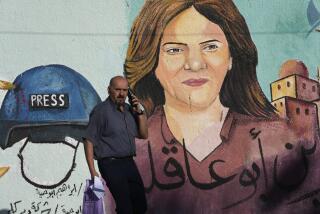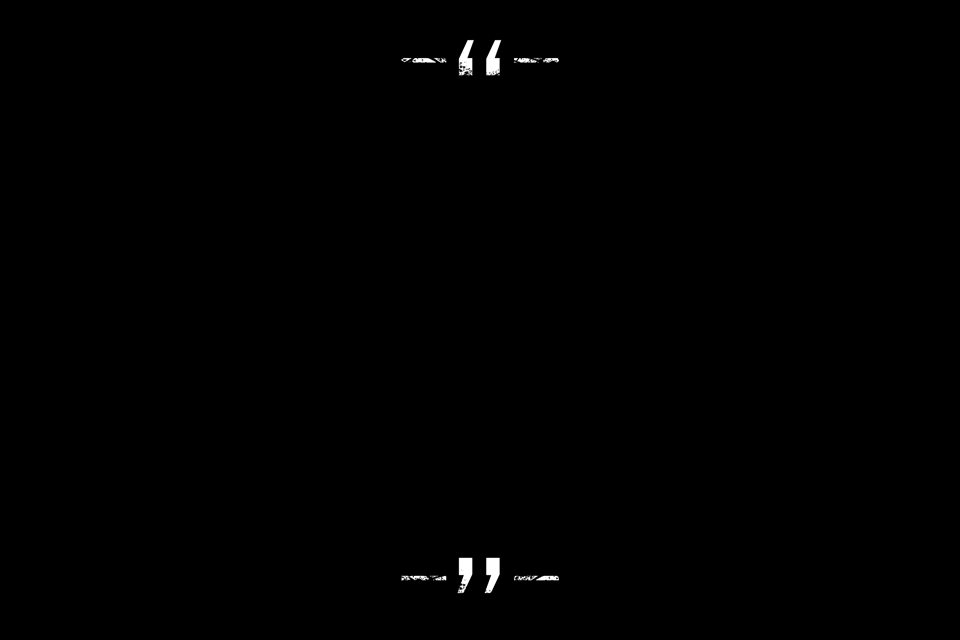Effort to Depict Iraqi Life Is Caught in a Tangled Web
- Share via
Journalist Magda Bandera of Barcelona, Spain, calls herself a “postwar correspondent,” someone who gives voice to the people left behind after the tanks withdraw and the bombers fly home.
This year, however, she was eager to tell a prewar story. She wanted to use the Web to transmit live video of ordinary Iraqis going about their lives, hoping to put faces on the anonymous people in harm’s way.
“It’s much easier to bomb someone you don’t know, who is very far away,” she said. “We want to connect people and show that they are ‘normal,’ just human beings.”
Her quixotic quest to install a Webcam in central Baghdad reflects a common belief among activists in the Internet Age that technology can bring grass-roots groups together to change the world. It’s a notion defined as much by faith as by distrust: faith in the power of information, and distrust in the mainstream media to tell the whole truth.
But Bandera and her cohorts in the “Webcam in Iraq” project hadn’t counted on being distrusted themselves.
Iraqi authorities who had a hammerlock on the country’s Internet service let weeks pass without acting on Bandera’s permit request. So the war began before the Webcam could reach its intended home in a middle-class Baghdad neighborhood.
Skeptics say the project was ill-fated from the start, given U.S. determination to topple Saddam Hussein.
“If an individual at home thinks they can have an effect like this through the Internet, good for them,” said Joe Saltzman, an associate dean and professor of journalism at USC. “Do I think they’re going to have an effect? Absolutely not.”
Still, members of the Webcam crew are pressing ahead. They want to install the camera in Baghdad after foreign troops leave, hoping its images will raise pressure on the U.S. and allies to honor their promise to rebuild the country.
Bandera, an earnest and voluble 32-year-old who’s spent much of her adult life backpacking through underdeveloped nations, was born and raised in the southern Spanish city of Malaga.
She said Spain’s 20th century tumult -- a civil war, the ravages of World War II and the rule of Francisco Franco -- fueled her interest in war and its aftermath.
“I have friends from Bosnia and also Serbia who still tremble when they hear a plane,” she said. “That is why I felt so sorry for Americans on the 11th of September. Nobody deserves to suffer this. Nobody.”
Bandera is a freelance writer for two Spanish newspapers and Marie Claire magazine. She has also written six books, including last year’s “Children of War.” Drawn from the weeks she spent in Iraq, Serbia, Bosnia and Algeria, it provides firsthand accounts of life in countries reeling from war or laboring under international sanctions.
As much as she’s fascinated by war, she says she couldn’t stomach front-line reporting. Nonetheless, she is eager to get past the propaganda she says often accompanies reports from the battlefield.
That’s where the Webcam fits. In January, she and an expatriate Iraqi friend were frustrated that the media were focusing on Hussein and not the people he ruled.
“Everybody knows the kind of dictator he is,” Bandera said, “but we do not know how Iraqis are. They are extraordinarily kind and cultivated people.”
The notion that Webcams are uniquely unbiased observers is common. In part, it arises from the distrust of traditional media outlets. Through the last decade, surveys by the Pew Research Center for the People and the Press have consistently found that most Americans don’t trust the media to be unbiased.
That’s not to say that the Internet is more trustworthy. Sreenath Sreenivasan, a professor of new media at Columbia University, said the Internet has problems too. And people tend to gravitate to sites that reinforce what they believe.
“It’s not a good medium for converting people from one side or another,” Sreenivasan said. “You can get these multiple viewpoints, but people tend to go where they’re comfortable.”
Bandera’s original plan called for a $600 Webcam each in Baghdad and Basra. They were to be hooked to computers in Internet cafes and pointed at the street outside. Images and sounds would be sent to www.webcaminiraq.org . The Internet service for the Web site added another $600 to the cost.
The ultimate goal was to feed the images to public places worldwide, from exterior walls of buildings to movie screens.
There was a catch, however: They couldn’t install a Webcam without Iraq’s permission. So one of Bandera’s first priorities was a trip to the Iraqi Embassy in Madrid. “They told us it was a great idea,” she said.
But encouragement was all officials had to offer. The permit would have to come from Baghdad.
Bandera flew there in early February to plead her case for a single Webcam in the capital. By that time, though, the U.S. was pressing the U.N. Security Council for a resolution authorizing war, and the Iraqi officials she met warned of “a kind of paranoia” within the government.
But they didn’t rule out the project entirely. Instead, Bandera’s request went to the Minister of Culture, and Bandera went back to Spain. The nine or so other members of the team, meanwhile, helped launch web caminiraq.org and a companion Web site, www.waitingforthewebcaminiraq.org, which offers antiwar film clips, photos and essays.
After weeks passed with a permit nowhere in sight, the team had an unexpected opportunity. Two of Bandera’s journalist friends were heading to Baghdad with the International Brigades, a group that had been delivering humanitarian aid to Iraq for seven years. The group received the government’s blessing to import the Webcam, and the journalists carried it with them to Baghdad on March 16.
The plan was to install the camera in an Internet cafe in the Mansour district once government authorization was given.
It still hasn’t come.
Although disappointed by the setback, Bandera said she is happy the Webcam hasn’t been covering the war. “It’s not about this. It’s not to make a spectacle,” she said.
Members of the team still think they accomplished something by designing the project and building support for it among nearly 100 nongovernmental organizations. The goal now is to take such projects to regions in need of aid.
The first stop may be Baghdad.
More to Read
Sign up for Essential California
The most important California stories and recommendations in your inbox every morning.
You may occasionally receive promotional content from the Los Angeles Times.











